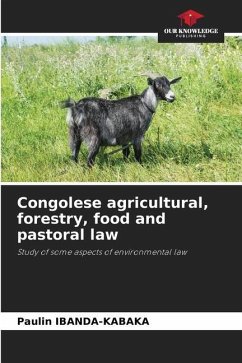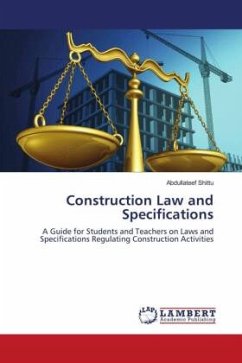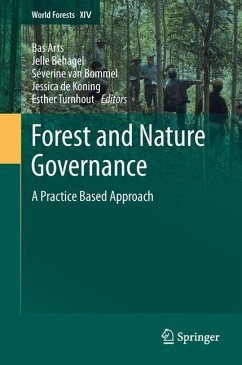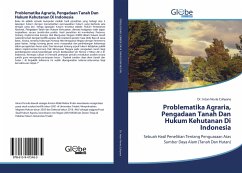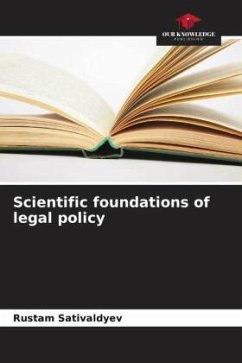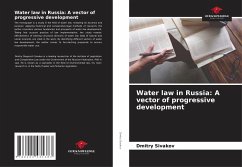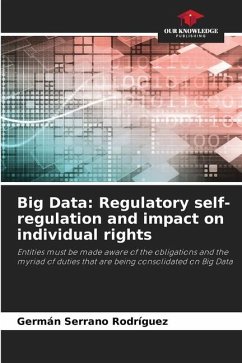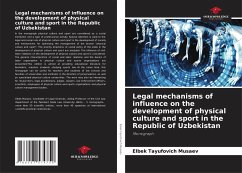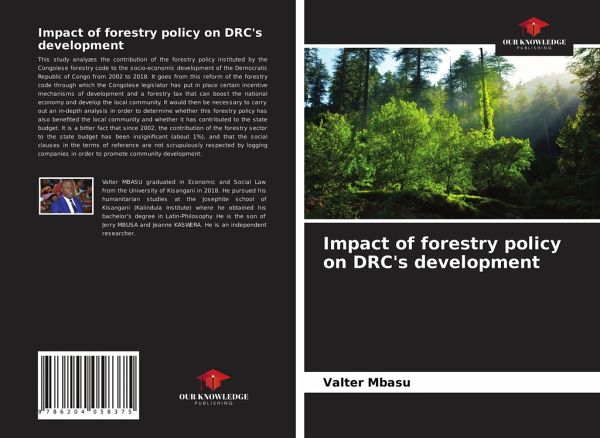
Impact of forestry policy on DRC's development
Versandkostenfrei!
Versandfertig in 6-10 Tagen
27,99 €
inkl. MwSt.

PAYBACK Punkte
14 °P sammeln!
This study analyzes the contribution of the forestry policy instituted by the Congolese forestry code to the socio-economic development of the Democratic Republic of Congo from 2002 to 2018. It goes from this reform of the forestry code through which the Congolese legislator has put in place certain incentive mechanisms of development and a forestry tax that can boost the national economy and develop the local community. It would then be necessary to carry out an in-depth analysis in order to determine whether this forestry policy has also benefited the local community and whether it has contr...
This study analyzes the contribution of the forestry policy instituted by the Congolese forestry code to the socio-economic development of the Democratic Republic of Congo from 2002 to 2018. It goes from this reform of the forestry code through which the Congolese legislator has put in place certain incentive mechanisms of development and a forestry tax that can boost the national economy and develop the local community. It would then be necessary to carry out an in-depth analysis in order to determine whether this forestry policy has also benefited the local community and whether it has contributed to the state budget. It is a bitter fact that since 2002, the contribution of the forestry sector to the state budget has been insignificant (about 1%), and that the social clauses in the terms of reference are not scrupulously respected by logging companies in order to promote community development.



